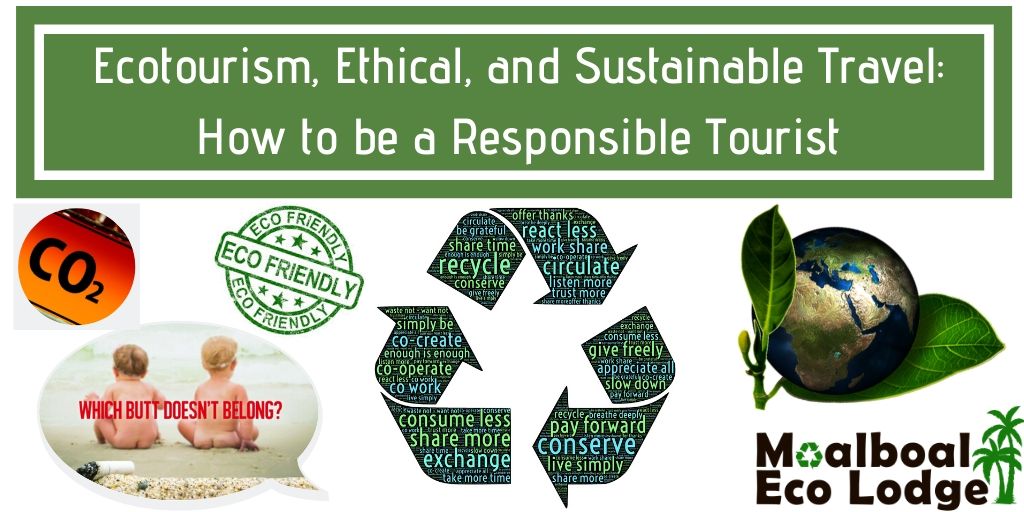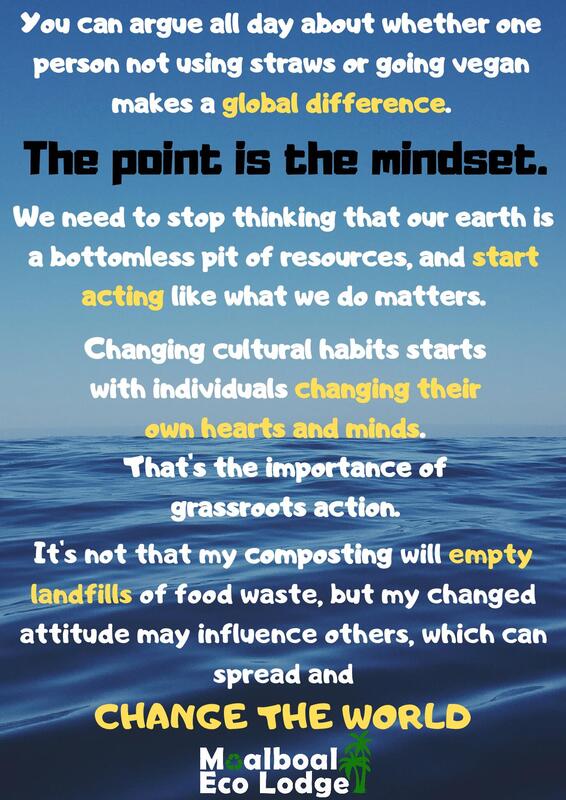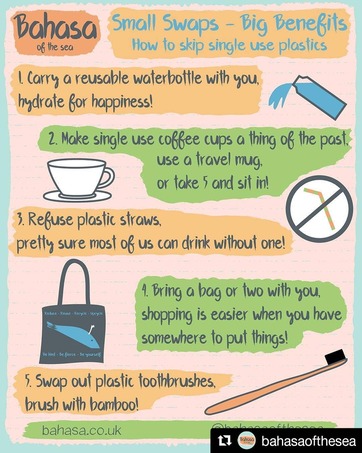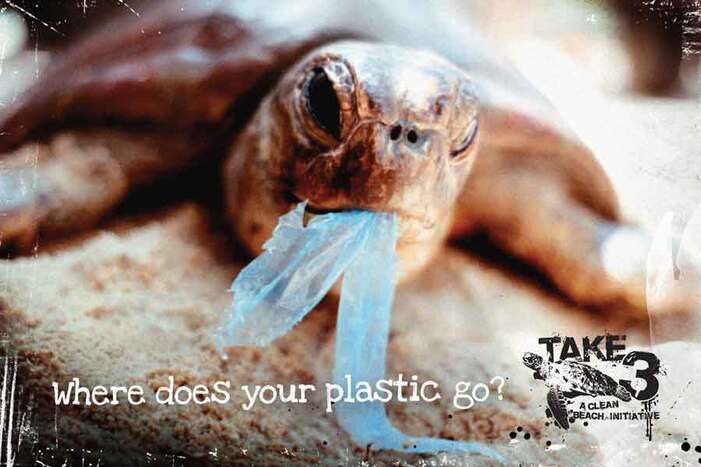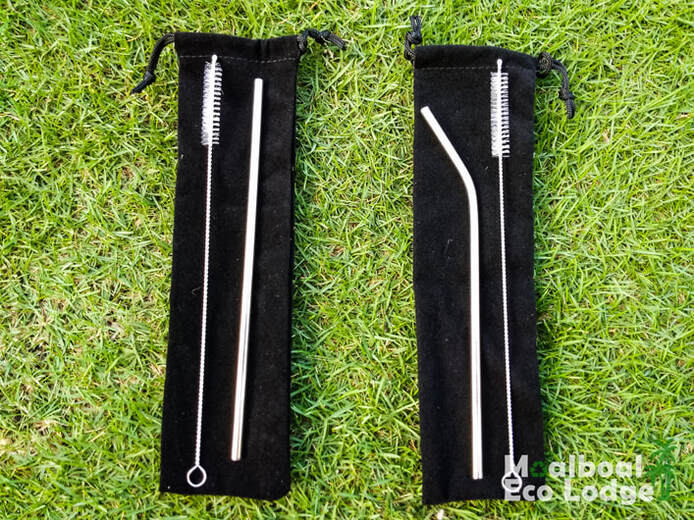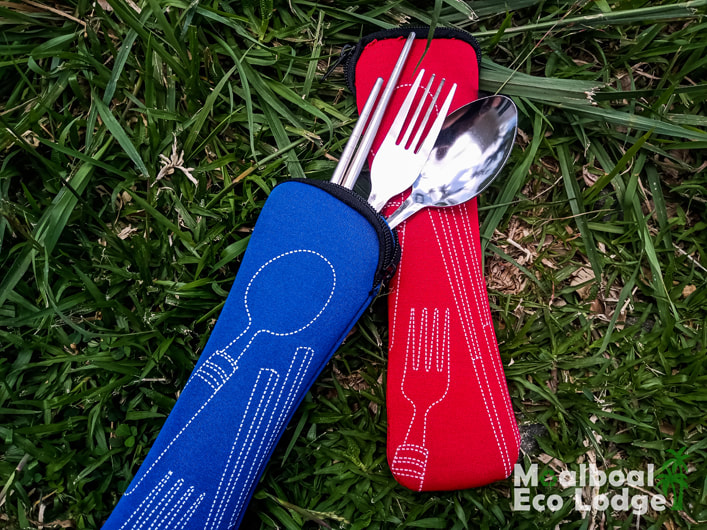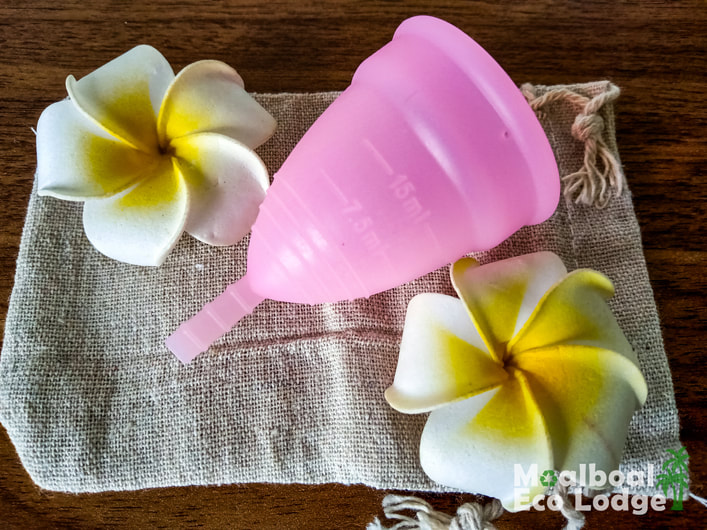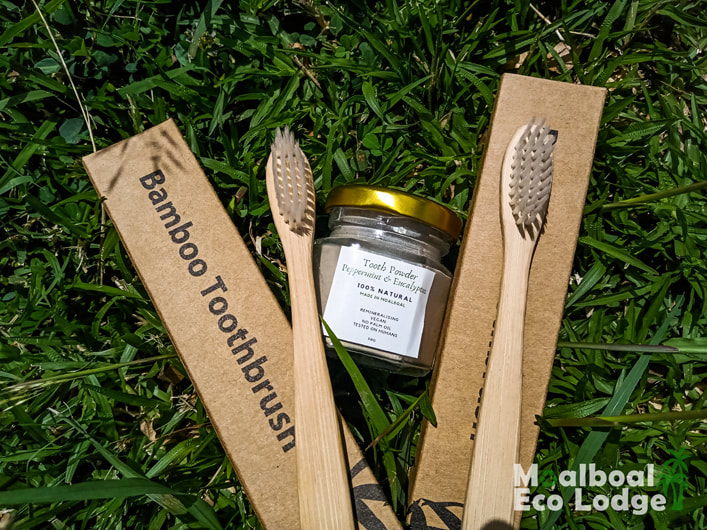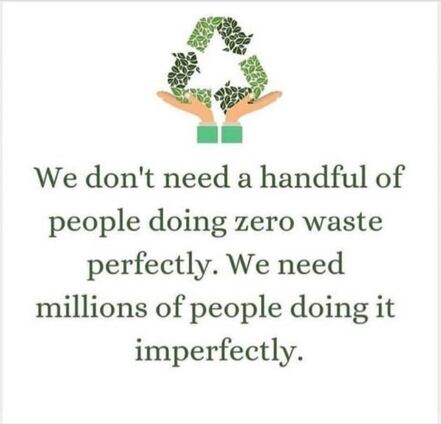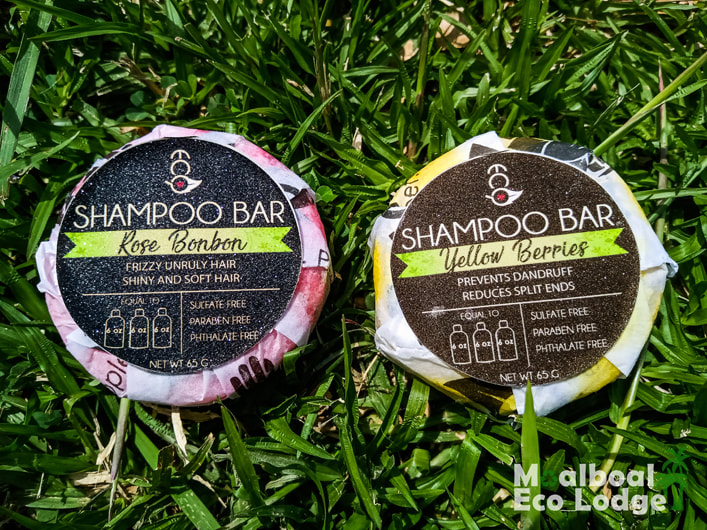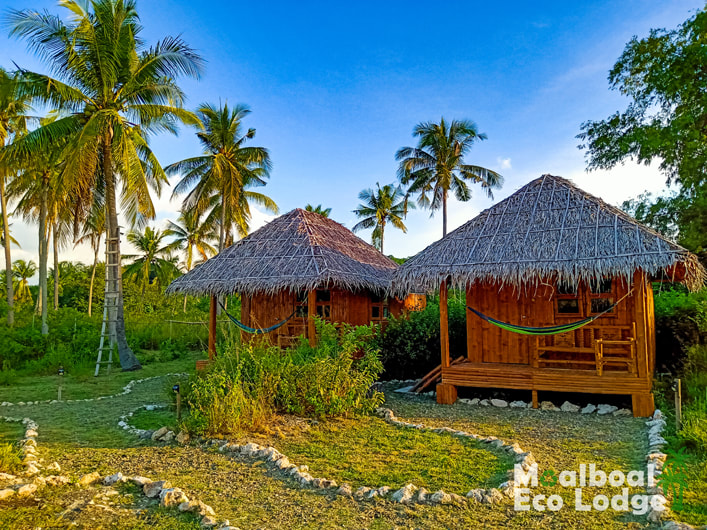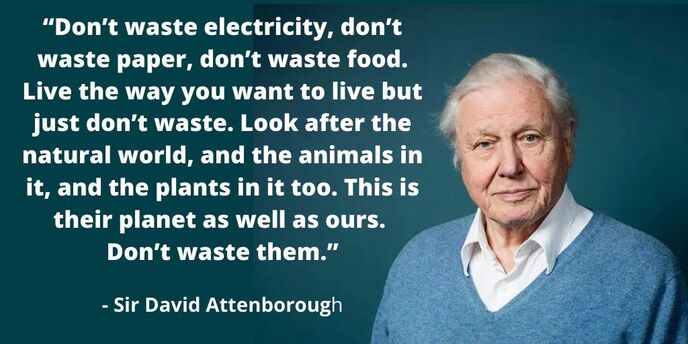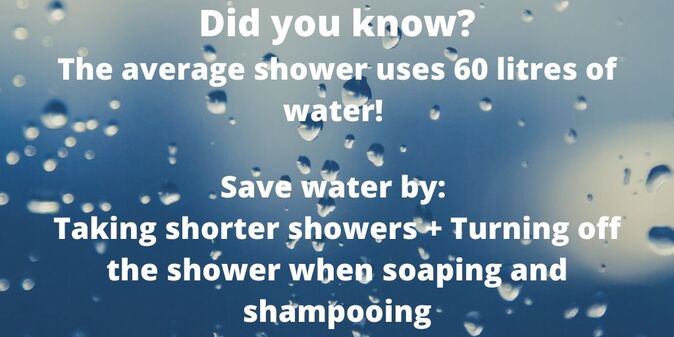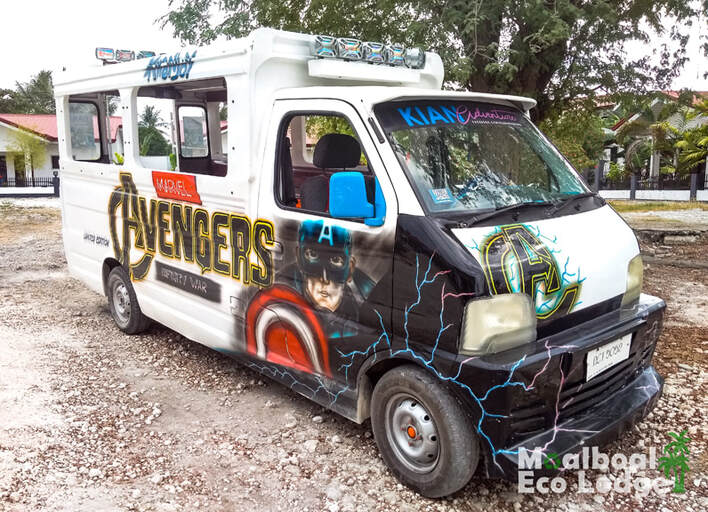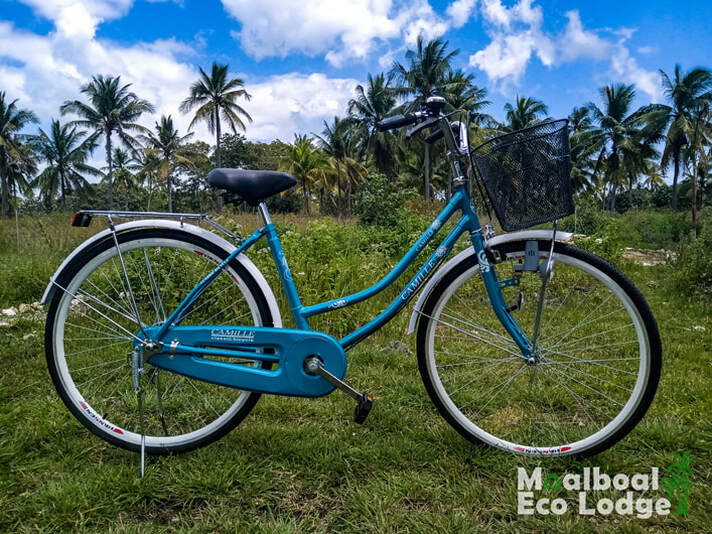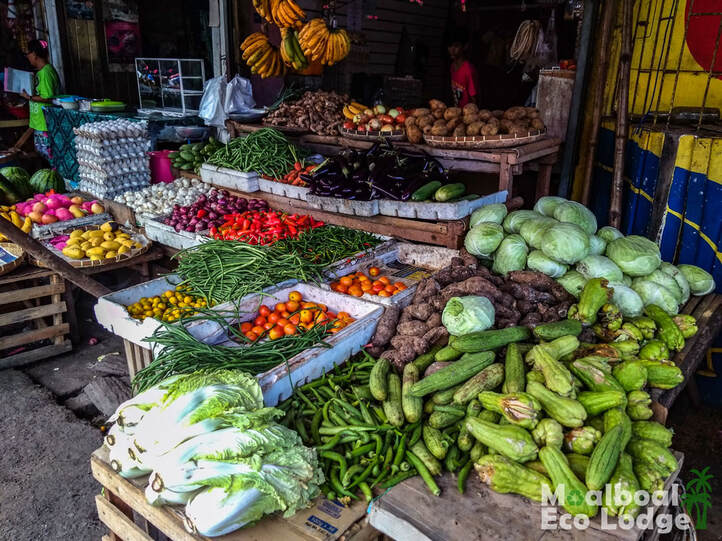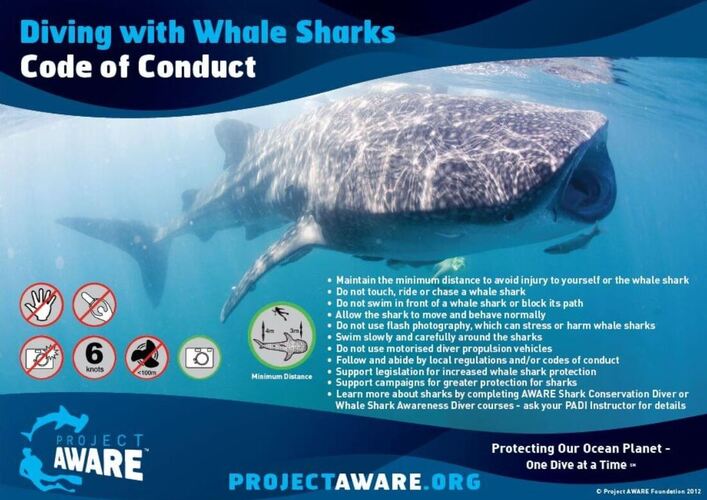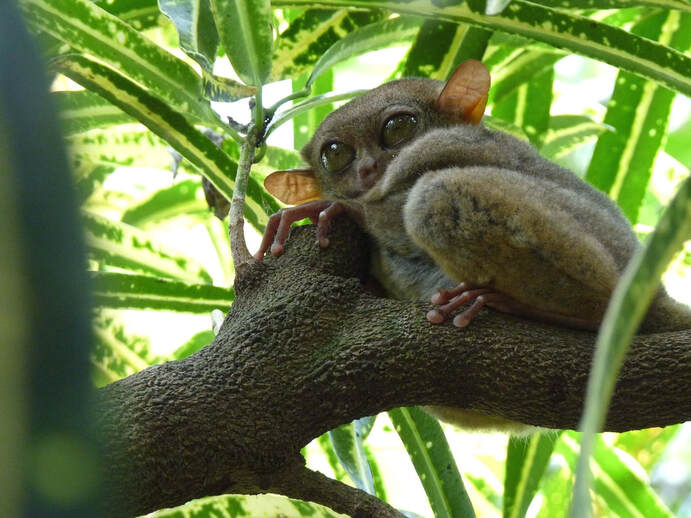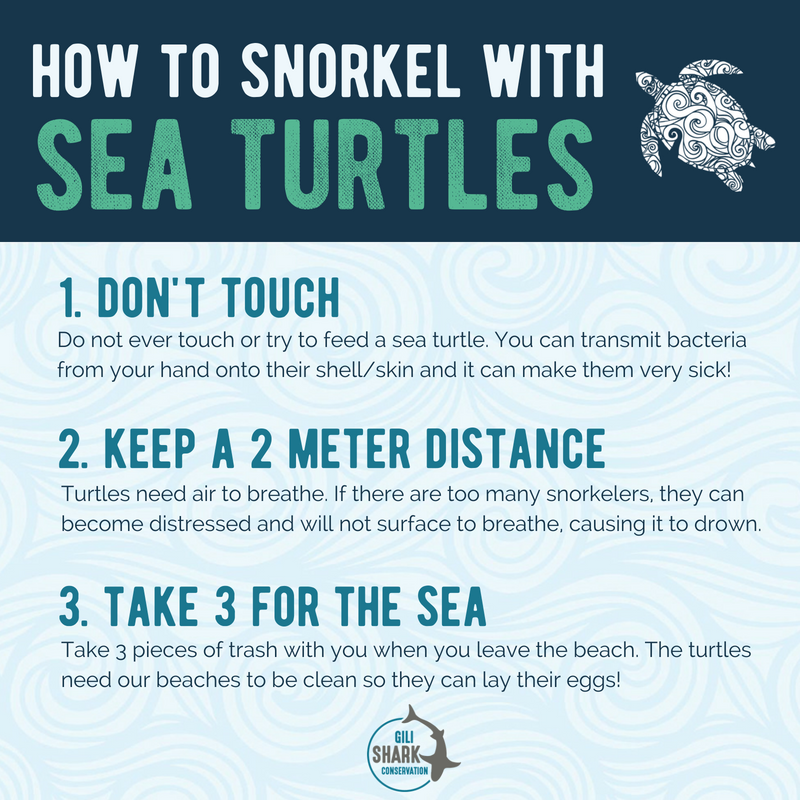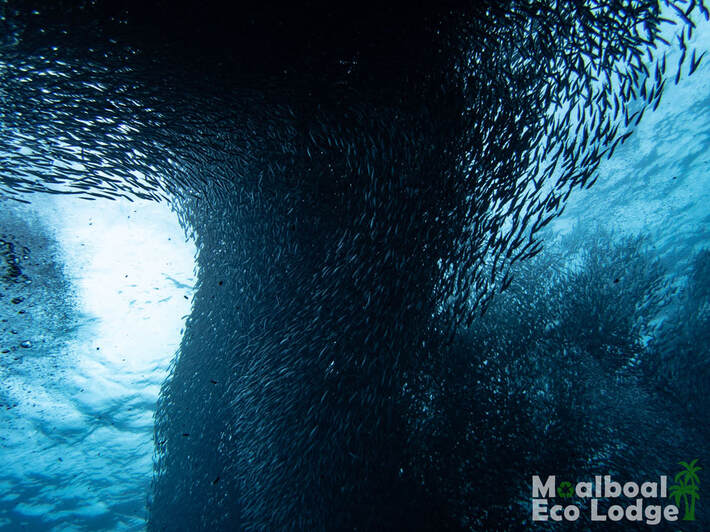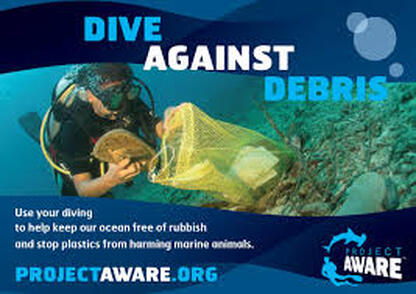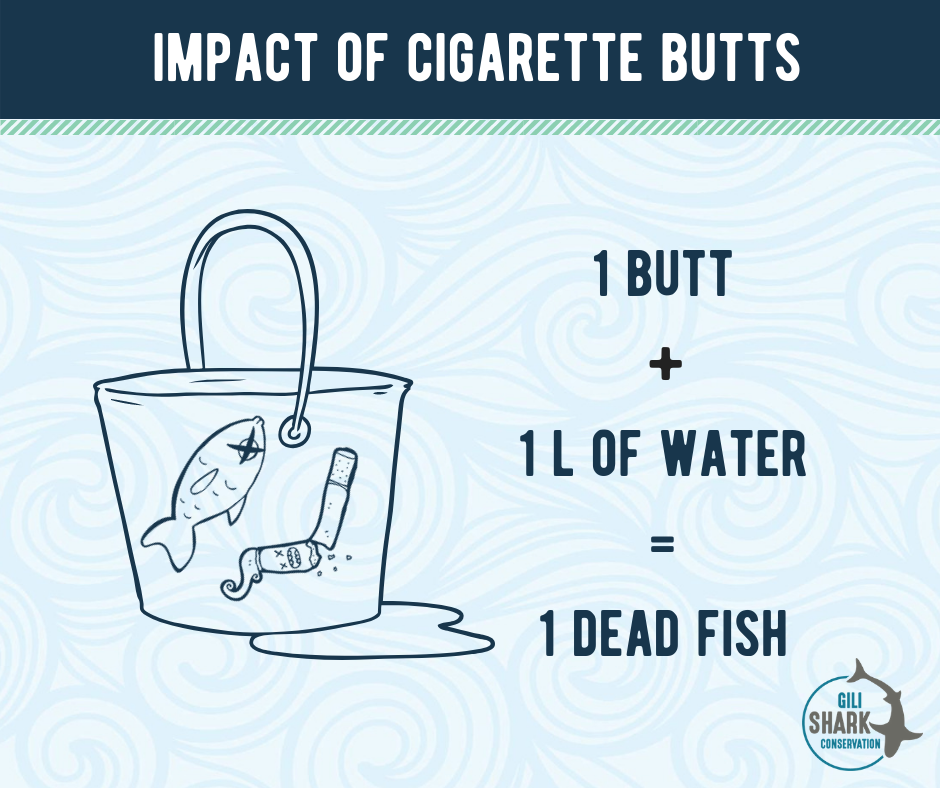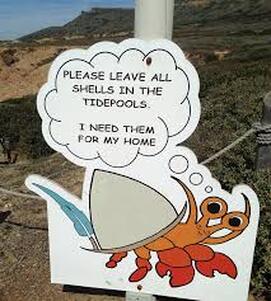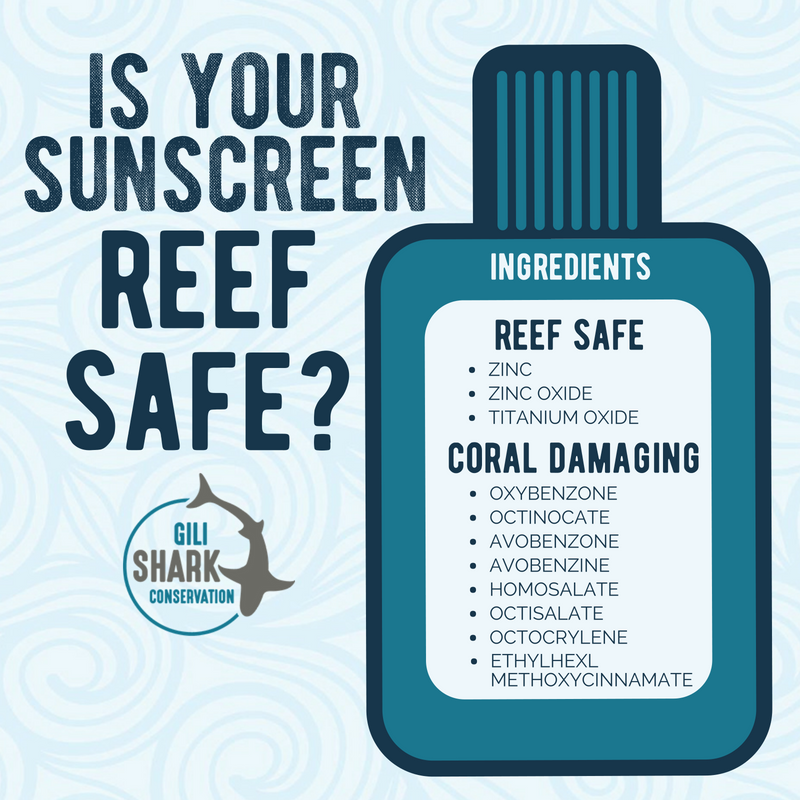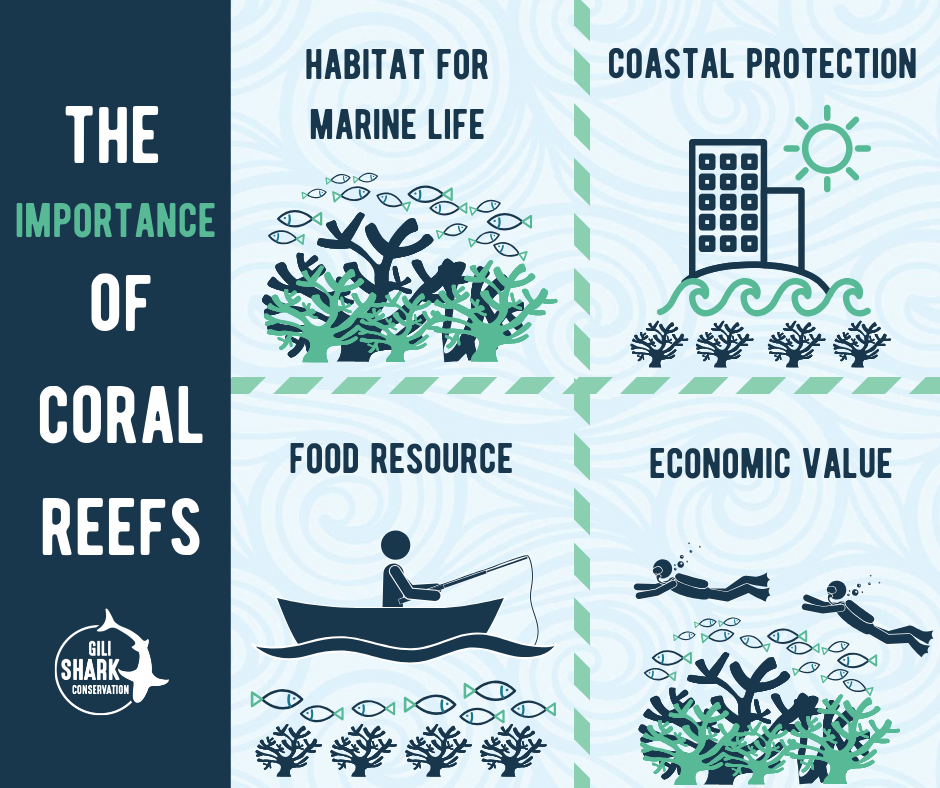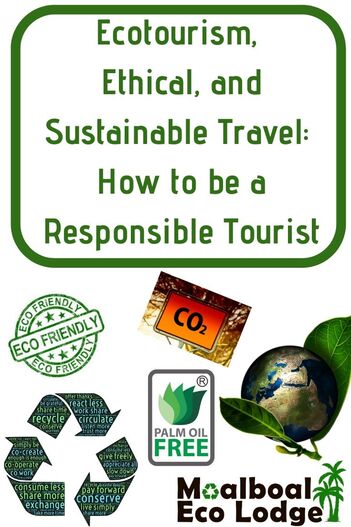|
Sustainable tourism, or “green travel” and wanting to be a responsible tourist are something we should all try to do. Changing our mindset about ecotourism and the way we travel is the key, all we have to do is be a respectful traveller; whether we are on a two week holiday, taking a sabbatical/gap year, or just getting away for the weekend, we should all try to lessen the impact we have on any place we visit.
Why is environmentally friendly travel important? Developing tourist destinations or poorer countries do not have proper waste management systems meaning little or no recycling facilities, this causes plastic pollution problems They are receiving visitors faster than they are able to keep up with trash/water/electricity demands, and up-and coming destinations do not have an abundance of resources for us to waste. Questions regarding ethical travel and animal welfare are constantly raised, overtourism is increasing, our coral reefs are being destroyed, and our desire to travel to as many countries as possible seeing as much as we can has a detrimental effect. If we enjoy travel, love seeing nature and the underwater world, why are we destroying it? No one wants to be made to feel guilty about travel, or to be told they are being an irresponsible tourist, but we cannot bury our head in the sand. Global warming is real. Climate change was last decade; we are now in a CLIMATE EMERGENCY. If you ask “Can I travel in a sustainable, ethical way?” the answer is yes, so let Moalboal Eco Lodge show you how to be a responsible tourist.
What is responsible tourism and overtourism (and why so many different names?)
Sustainable tourism is an overused term and is often misunderstood, so people are now preferring the broader term of “responsible tourism”. Sustainable travel means not staying in All Inclusive resorts or cruising as neither help the local economy and are wasteful on a gigantic scale. It also means no flying due to the C02 emissions/greenhouse gases, but this is obviously something people find more difficult to avoid.
Ethical travel and ecotourism are usually linked to animals and local people. It means not participating in any activity which exploits, supports or contributes to animals or local people in a negative way. An example of unethical tourism is elephant riding or giving money/sweets to begging children when they should be in school. To travel in a responsible way encompasses all of the above. You aim to leave a positive impact on the environment, society and local economy but also raise cultural awareness and respect. Without any further ado, let's jump right in with suggestions to help you be a responsible traveller.
Reduce your single use plastic use
1. Carry a refillable water bottle
In countries such as the Philippines where you cannot drink tap water, you have no option but to buy filtered water, but there are no recycling options so all bottles end up in landfill, and polluting our oceans. By investing in a refillable water bottle, you can use one of the many refill stations, which will also save you money in the long run. Cha-ching! One of the things you should know before visiting the Philippines, is that restaurants have FREE filtered water, when you next order a meal, ask for “service water” to save you buying bottled water. If you do not own a refillable water bottle and are left with no choice but buy a plastic one … keep using and refilling it for as long as possible! This will reduce the amount of bottles sent to landfill. For guests staying with Moalboal Eco Lodge, refillable water bottles are provided to use during their stay to encourage less single use plastic waste, and there is a free unlimited refill water station.
2. Carry a reusable canvas bag
A canvas bag is lightweight and small, so can easily fit into your handbag, daybag, backpack/rucksack or in the seat of your scooter. For guests staying in Moalboal Eco Lodge, a reusable canvas bag is provided to take with you on day trips – perfect for buying souvenirs, groceries or fruit from the market – this is another way to encourage less single use plastic. If you have been given a plastic bag from a shop, continue to carry it with you, and reuse it over and over. The issue is single use plastic so if you already have plastic, keep using it then it becomes less “single use”.
3. Say “No to The Straw” and carry your own
Unfortunately, there are many places which still hand out plastic straws, even with a can of soda! No one wants to stop you enjoying a fresh coconut or sunset cocktail, and by carrying your own straw, you can say “no straw” when ordering a drink. There are many options from bamboo to pyrex, at Moalboal Eco Lodge we have stainless steel straws which are sold with a cleaning brush and carry pouch. Some places use paper straws which is good because they aren’t plastic, but the issue is still single-use. It’s better to be zero waste and not send things to landfill (even if it is biodegradable), and if you have your own straw, you will be helping to be less wasteful.
4. Use your own travel cutlery
Having your own cutlery means you can eat anywhere at anytime, especially if you enjoy street food. The amount of plastic cutlery handed out with take-out food or at street stalls is shocking, so use your own and you won't be contributing to the single use plastic problem.
Visit our Eco Shop* for your plastic free,
zero waste, palm oil free products for use every day! (*10% from every purchase is donated to Moalboal Dog Rescue)
5. Ladies – it’s time to discover the menstrual cup
Instead of tampons and sanitary pads, switch to a menstrual cup. A menstrual cup is a small, flexible, easy to carry device which can used and washed over and over - perfect for travelling! It will also save you a lot of money on disposable pads/tampons in the long run. Cha-ching! Millions of women are loving the freedom that comes with a moon cup, for instance did you know that many places do not sell tampons? By travelling with a menstrual cup (which Moalboal Eco Lodge sell with its own carry pouch), you will never have to panic when “the time of the month” strikes.
6. Ditch the plastic toothbrush (and toothpaste) and go bamboo
Plastic toothbrushes cannot be recycled, and bamboo is the fastest growing plant so a sustainable alternative. Once you have finished with it, throw your toothbrush into the compost, or use it as a plant marker in your garden. If you don’t have a compost bin and it has to be thrown away, at least it will biodegrade. If you want to take it a step further, all supermarket toothpastes at some point have been tested on animals, they contain palm oil as a preservative and to make it foam (giving you the illusion that foam = clean teeth … it doesn’t by the way!). Switching to tooth powder or tooth tabs makes you plastic free, palm oil free, and you won't be using a product where an animal has suffered.
Try to be Zero Waste
Speaking of being less wasteful, aiming to be zero waste means you are sending less to landfill, which is essential for every country in the world. For example, don't print out your travel confirmation ticket instead upload it to your phone, seek out zero waste stores in cities you are visiting and refill your liquids, take time to eat in instead of getting take out. Another excellent example of zero waste are shampoo bars, conditioning bars, and deodorant bars - they all tick many boxes!
✔ No plastic ✔ Palm Oil Free ✔ Not tested on animals ✔ Less to carry (2-in-1)
✔ Doesn’t count as a liquid for your carry-on ✔ Vegan (make sure it doesn’t contain beeswax)
Choose to stay in eco-friendly accommodation
Eco-friendly accommodation such as Moalboal Eco Lodge, care about the environment, limit their impact on their surroundings, and have practices in place to help guests do the same. For example, guests are encouraged to reuse towels and use less single use plastics, there may be bicycles for hire, rainwater collection is in place, they reduce the use of chemicals, and try to educate others how they can lessen their impact whilst travelling Be aware that some places have jumped onto the “eco” bandwagon because they are in a remote or rural location, and do not have sustainable practices in place. If you are unsure, don’t be afraid to ask what makes them an eco-friendly accommodation.
Water and electricity are precious resources – don’t waste them!
Many people take water or electricity for granted. Water comes from lakes, rivers and the ground, but most of Moalboal doesn’t have mains water meaning residents can (and do) run out of water. To provide electricity, fossil fuels are burnt which are the largest contributor towards the climate emergency we are experiencing. When planning Moalboal Eco Lodge we built an underground 9,000 litre rain water collection system, to harvest what nature provides. When it rains, our tank collects water to be used by our guests. The average person uses 100 litres a day; up to 60 litres just by taking a long shower, and 6 litres per toilet flush! If people are wasteful, take long showers or leave the tap running, there will be none left for others.
The Philippines generate their electricity from oil and coal, both are not sustainable and contribute hugely to global warming. These 5 ways will help you save electricity and water.
• Turn off fans and lights when you are not in your room. • Don’t leave air conditioning units turned on “to keep the room cool” when you aren’t there. • Turn off the tap when brushing your teeth – you don’t need the water running for 2 minutes! • When shampooing and soaping, turn off the shower – this will save a few minutes of clean water washing down the drain. • If you see a dripping tap/faucet, turn it off. Staying more than one or two nights in your accommodation is also better for the environment. Hotels will wash sheets and towels when you leave meaning more water and electricity are used. If you stay more than one or two nights, don’t ask for fresh towels every day, you wouldn’t change them daily at home so why should you when travelling?
Travel slow
Today we live in a world that seems to be time-poor, and we are always rushing around trying to fit everything in, travel is no different. We all want to see as much of a country as we can, rushing from place to place often staying only one night and flying in between destinations. Travel slow and stay more than one night. By not rushing to your next destination and taking an extra bus/flight/taxi, this will reduce the amount of fossil fuels you are using. An added bonus is you get to learn more about the people/place in which you are staying because you have spent a little more time there, that sort of experience cannot be bought. Fossil fuels are collected and burnt to provide petrol/gasoline and electricity, but this is the leading source for the world’s global warming pollution, and the climate emergency we are experiencing. The extraction process generates air and water pollution which are harmful to local communities., and when the fuels are burnt they release dangerous toxins.
Use public transport
Another way to slow travel is to use public transport such as trains, buses or coaches between destinations instead of flying or taking a taxi. Not only will you see more of the country and have a better perspective of local life, you will be using less fossil fuel for petrol/diesel. For example, flying London to Madrid emits 118kg of CO2 emissions, but if you take the train this would only be 45kg of CO2 emissions. There are no trains in the Philippines, but there are many other local transport options. The Ceres Line air conditioned bus service in Cebu is more like a coach with large windows and big comfortable seats, it’s also a lot cheaper than a taxi. You can also use a tricycle known as a habal-habal, which is a bike with a side car. Jeepneys are an iconic form of local transport unique to the Philippines. They are long, brightly coloured vehicles with open sides, and passengers just jump on and off when they reach their stop. If you have a chance to ride in one – do it! With rides as cheap as P20, it’s a fantastic way of emerging yourself into the local culture, and you are contributing towards sustainable travel.
Hire a bicycle
Cycling in a new destination is a fabulous way of seeing a Country. Hiring a bicycle means you are not using any fossil fuel, and you are keeping fit in a fun way. The roads around Moalboal are very good, and perfect for cycling. Locals are very respectful and give you a wide berth, beeping to let you know they are behind you – I know because I cycle everywhere. Moalboal Eco Lodge have bicycles for hire, and it only takes 10 minutes to either Moalboal town centre if you want to buy fresh fruit from the market, to Panagsama for snorkelling with sardines, or 15 minutes to White Beach for a lazy day in the sun. Be respectful of local people and animals Being aware of the impact you have on local people and participating in ethical tourism is a huge part of being a responsible tourist. Any activity which exploits people or animals is not considered ethical, for example, the long-neck tribes of Thailand exploits refugees from Myanmar/Burma who have been refused citizenship, and who are not allowed to settle outside of tourist villages. The following two suggestions give examples of ethical travel.
Support local vendors - eat and buy local
If you need a new sarong, fresh fruit or want souvenirs, buy from a local vendor. Wherever possible, eat at street stalls or small restaurants, purchase products from artisans as this will support the seller, their family directly and can preserve traditions. I can guarantee that they will be more appreciative of you buying from them, than the shop assistant at a supermarket chain.
Avoid unethical animal tourism
If you love wildlife, it’s natural you will want a close encounter, but don’t participate in any animal activity where they are being exploited for your Instagram photo. As a general rule, avoid anything that is hands-on or has human intervention, this includes bathing or washing animals such as elephants, or if they are being fed. A study by World Animal Protection discovered that 75% of wildlife tourist attractions have a negative impact on wild animals. Here are three examples of unethical animal tourism in the Philippines that you should avoid if you want to be a responsible traveller, and ethical alternatives. Whale sharks in Oslob are fed so they continue to hang around for tourists. Whale sharks are classified as “endangered” and studies show individuals are choosing to hang around longer, and as a migratory species, this means they are missing out on mating and pupping grounds which is crucial for the longevity of the species. Their food only provides a small percentage of the nutrition they need to be healthy … also a crucial factor for the life span of the species, and they are purposely not fed enough keeping them hungry to ensure they continue to hang around. Alternatives - Donsol or Southern Leyte do not feed whale sharks, instead the plankton rich waters around these areas between November - May is what keeps them here.
Tarsiers in Bohol are naturally nocturnal, so they sleep in the day and hunt at night. Their large eyes are extremely sensitive to daylight and camera flashes, their sensitive ears hate noise, and being shy creatures they hate human contact and have been known to kill themselves when held captive.
Unfortunately you can only see them during the day in Bohol, which immediately means they will be stressed. The “sanctuary” near Chocolate Hills is on the itinerary for nearly all tours and is very bad for the species. It is not a true sanctuary, and the Tarsiers are suffering. Alternative: There are no truly ethical places to view them in the Philippines, however the best place to see these adorable creatures is The Philippine Tarsier Foundation, Corella, Bohol. They are the main non-profit organisation who help protect the Tarsier, are recommended by National Geographic, and by ecotourism organisations DENR (Department of Environment and Natural Resources) and DOT (Department of Tourism).
Visit our Eco Shop* for your reef safe sunscreen and plastic free products for use every day!
(*10% from every purchase is donated to Moalboal Dog Rescue)
Dolphin Watching in Alegria is an Ethical Alternative
If you choose dolphin watching in Alegria, this is a 100% ethical activity. No feeding, no chasing, just you and the spotter watching the dolphins playfully swimming alongside your boat. Check out our short YouTube video of our dolphin watching encounter.
Protect our oceans
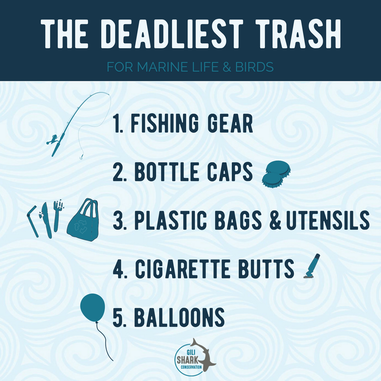 Does this list of the ocean's deadliest trash surprise you? Does this list of the ocean's deadliest trash surprise you?
We need the ocean to breathe, it’s as simple as that. Oceans produce more than half the oxygen we breath, and absorb the most carbon from our atmosphere, but we are killing it. Fish, whales and turtles are eating plastic and dying. Coral reefs are dying. Commercial trawler fishing is destroying the ocean bed, and killing marine life which are caught in their nets as by-catch. This has to stop. The next few tips will help you protect our oceans.
Eat fish lower in the food chain
Did you know that 50% of the world’s fish consumption is from aquaculture? Because we have over-fished our oceans, many fish such as tuna are nearly extinct, and we cannot keep up with the world’s demands for fish so huge fish farms have been created. The only way to catch fish sustainably is spearfishing, as this involves just one person and no plastic fishing line. Unless you know the fish has been caught this way or you have caught it, no other fishing methods are sustainable, and it’s for this reason I no longer eat fish. However, people are reluctant to give up eating fish, so if you want to be a responsible traveller, choose fish lower on the food chain such as sardines or mackerel. Never eat Parrot fish because they are an indicator of a healthy coral reef and are desperately needed in our ocean not on your plate. If you see one for sale, don’t order it thinking “well it’s dead now I may as well eat it”, as this encourages people to continue fishing for them. Participate in beach, island or ocean clean ups
Never leave cigarette butts on the beach
Leave shells on the beach and never buy products made from shells
Choose reef-safe sunscreen No sunscreen is safe for coral reefs, unless it specifies it is reef safe. Coral reefs are tiny animals which are being harmed by nasty chemicals found in sunscreen, which people apply before going into the ocean. The main ingredient to avoid is Oxybenzone. As a side note, the FDA have released new sunscreen regulations advising that only two ingredients provide complete protection for UVA and UVB, one of these ingredients is Zinc Oxide. Zinc Oxide is a Mineral that sits on top of the skin providing complete protection for UVA and UVB rays. Look for products which contain more than 15% zinc oxide as this will give you an SPF 24, more than 20% is SPF 30. Visit our Eco Shop which sells reef safe sunscreen! Participate in #MeatlessMonday 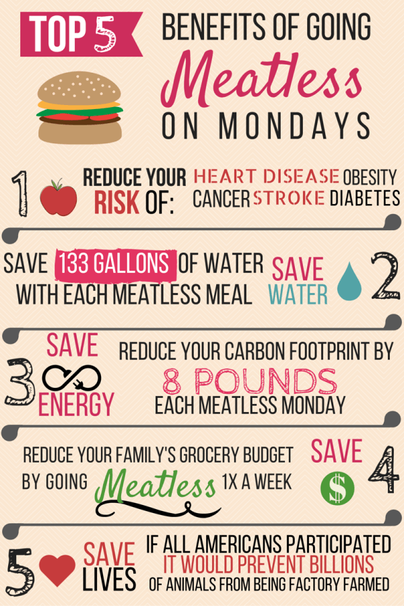
One of the best ways of helping the environment wherever you are in the world, and for improving your health is by consuming less meat and dairy, especially beef. Intensive farming methods needed to produce enough meat for the demand is having a negative effect on our planet. Remember the Amazon fires in 2019? They were sanctioned by the Brazilian Government to clear lands for cattle farming.
Every year, 13 billion hectares of forest are cleared to make way for animals or animal feed production, and a huge amount of water is used to process meat. The World Cancer Research Fund recommends we “choose mostly plant foods, limit red meat and avoid processed meat” According to the United Nations Food and Agriculture Organisation, the livestock sector is “one of the top two or three most significant contributors to the most serious environmental problems, at every scale from local to global”
It doesn’t have to be a Monday when you don’t eat meat, be conscious of your consumption and pick any day of the week, or take any opportunity to have a vegetarian or vegan meal.
In trying to help the planet, Moalboal Eco Lodge serve a delicious vegan smoothie bowl for breakfast, and have vegan Chilli Con Carne on their snack menu. Travelling is the best form of education in so many ways, but it is our responsibility to look after the world we love. By making a few simple changes, you will minimise your waste, be contributing to the local economy, and reduce the amount of precious resources you use. All this leads to a more positive impact during your travels.
Staying in Cebu? Read our Day Trips from Moalboal Series
Kawasan Falls, Badian Basdaku "White Beach", Moalboal Mantayupan Falls, Barili Lambug Beach, Badian Taginis Falls & Budlot Spring Montpellier Waterfall, Alegria Simala Shrine Castle Church, Sibonga Heading to the Philippines? Check out these related posts! Swimming with Sardines in Moalboal 28 Things to Do in Moalboal, Cebu Must-Try Filipino Foods Things You Should Know Before Visiting the Philippines Fun Facts About the Philippines
Pin this post for future reference!
0 Comments
Your comment will be posted after it is approved.
Leave a Reply. |
Archives
October 2023
Categories
All
|

